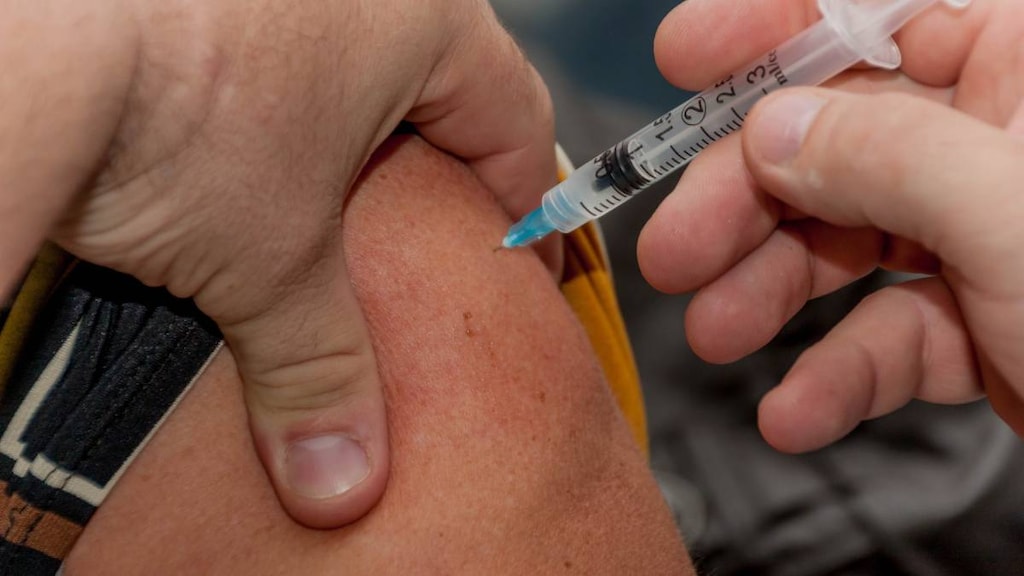
What is vaccination?
Vaccination is the process of administering an infant, child or adult a vaccine which will help their immune system develop protection from a disease, or in the case of a combination vaccine, several diseases.
How does vaccination work?
Vaccines either contain a killed or weakened form of a microorganism or a small amount of its toxins or proteins.
Vaccines will not cause the disease or put you at risk of the disease's complications, but they do stimulate and train your immune system to make antibodies against the microbe that causes the disease. This builds up your immunity so that if you ever get exposed to the microbe you have been vaccinated against, your immune system recognizes it, produces antibodies against it (these are proteins that help fight the disease), and quickly destroys it before it can affect you.
Most vaccines are given by injection but some are given orally or sprayed into the nose.
Why should I get vaccinated?
If you wanted to pick the most significant event in human history that reduced the spread of infectious diseases, improved sanitation including clean water and proper sewerage disposal would be number one.
But vaccination runs a close second, sitting ahead of antibiotics. Vaccination has had a major effect on reducing death rates and enhancing population growth. It is easy to forget, or more correctly, be completely unaware of just how deadly or disabling some of these diseases were or can be.
Parents in the 1940s and 50s welcomed vaccination with open arms. They had watched tetanus ravage soldiers in World War I, and diphtheria and pertussis kill their young babies. Everybody knew the disablement polio could cause and were thankful that the measles vaccine reduced hospitalizations and death from pneumonia. For once there was a way to prevent the thousands of babies being born with birth defects from rubella.
The World Health Organization estimates vaccines save between 2 and 3 million lives every year. Although some diseases are now uncommon, the microbes that cause them are still present in certain areas of the world.
The two main reasons to get vaccinated are:
- To protect yourself
- To protect others around you (young babies, children with cancer, and many others are unable to get vaccinated for genuine reasons and they rely on everybody else around them being vaccinated for protection)
Are vaccines effective?
No vaccine is 100% effective, which means that a few vaccinated children will still succumb to disease if there is an outbreak; usually in a much milder form.
For example, measles has 97% efficacy after 2 doses (meaning 3 out of 100 vaccinated children will still get measles if exposed to it). Compare this to no vaccination, and an almost 100% chance of catching the disease.
Measles is so contagious that you could catch it just by walking into a room that an infected person has left hours before. Some other vaccines, notably pertussis (whooping cough) have lower efficacy rates (86% after 3 doses).
Vaccine efficacy is also affected by how many people within a population are vaccinated. For maximum efficacy, at least 95% of the population must be vaccinated on time, according to the recommended immunization schedule.
If most people are vaccinated, this offers protection against infection for those who are unvaccinated, because it reduces the chances of an outbreak taking hold. This is known as community immunity or "herd immunity".
Unfortunately, unvaccinated people tend to cluster in groups and non-vaccination is common in certain religious communities or some opinionated groups, which puts the whole community at risk for outbreaks.
Are vaccines safe?
Vaccines are much safer than most people think.
In addition to the antigen which is the ingredient that causes the body to develop immunity, concentrations of other ingredients - all of which are necessary for the making of the vaccine - are tiny, and usually, far below levels you would find naturally in breast milk or food.
Vaccines can cause mild side effects, such as a low-grade fever, pain, or redness at the injection site. These reactions usually go away within a couple of days. Severe reactions to vaccines are very rare.
Thimerosal was removed from childhood vaccines in the U.S. in 2001 as a precautionary measure, but there was never any evidence that it caused harm or autism. Formaldehyde is used as an inactivating agent in some vaccines (such as tetanus); however, it is not a component of the final product, although minuscule traces of less than 27 parts per million may be present. Similar levels of formaldehyde occur naturally in fruits and vegetables such as apples, bananas, and cauliflowers. Contrary to popular belief, aluminum has not been shown to cause Alzheimer's Disease or dementia. No viral diseases have ever been associated with the use of human albumin in vaccinations.
In 1998, The Lancet published a research paper submitted by Andrew Wakefield claiming that colitis and autism spectrum disorders (ASD) were linked to the combined measles, mumps, and rubella (MMR) vaccine. The media had a field day, but it took extensive investigations by Sunday Times journalist, Brian Deer, to uncover the truth. Wakefield had manipulated evidence to profit from new tests he aimed to launch on the back of an MMR vaccination scare. In addition, he had also conducted unnecessary colonoscopies and lumbar punctures on susceptible children with autism without ethics committee consent. Wakefield was found guilty of serious professional misconduct in May 2010 and struck off the Medical Register. Unfortunately, his fraudulent study contributed to a climate of distrust of all vaccines, and his work is still quoted by anti-vaccination groups today.




